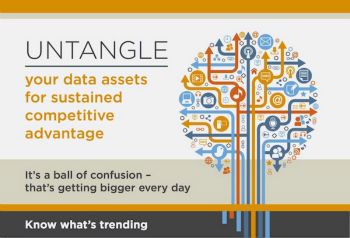Dinis Guarda interviews Bottler Distribution Group CEO Andy Weinstein in this new interview series for citiesabc. Both experts go through major challenges in the Supply Chain Industry and how to improve communication and sustainability in the industry.
BDG Founder Andy Weinstein understands distribution. A working member of a third-generation Pepsi / Dr Pepper Bottler in the Pacific NW, Andy is intimately involved with the operating networks that affect his family business. He has a lifelong familiarity with the business dynamics of the industry—an industry that delivers physical goods, day in and day out, across America.
Andy Weinstein Interview focus
1. About Andy’s background
2. How are you addressing the problems and reputation of single-use plastic in terms of its environmental impact? How are you working with legacy models and infrastructure while also moving towards the future?
3. What is your strategy to address the 8.3billion tons of waste plastic being produced every year?
4. The three main areas of your business are physical product, supply chain and digital solutions. How do you bring these together in harmony?
5. How is your startup integrating with the legacy business that your family has owned and run for so long?
6. How do you see the distribution industry embracing new technologies and systems and, in particular, the medium and small players?
7. How do you convince these smaller distribution companies that may not be acknowledging the impact that technology can have on their business?
8. How is your company innovating in the distribution sector? How do you bridge the cultures between your startup and the more traditional players in the distribution industry?
9. Tell me about your company’s inception and mission statement?
10. Your company is involved in healthcare and healthcare products. Tell us a little about this shift especially considering the current global pandemic.
11. How do we bridge the gap between technology solutions and identifying the solutions?
Key Takeaways
Here are some of Andy Weinstein’s main takeaways from the interview. Do view the video above to find out everything BDG and Andy Weinstein are working on regarding sustainability and supply chains.
About Andy’s background. I have always been very curious and interested in how a product goes from where it is produced to the hands of the consumers. And I saw this when I was really young going to groceries and buying the products that were replenished every day. Even at that young age, I was always thinking about what could I do to improve the system. That curiosity led me to become an expert in that area with a mission to improve supply chains. And since I started working in this sector, I have tried to add new technology solutions to make supply chains more efficient.
About improving legacy systems. Right now, each part of the supply chain only operates, and almost specifically, in what they do, they don’t get feedback from other supply chain players and that was something I thought needed to be improved. I want to create a feedback loop where the manufacturer and the distributor communicate with each other. One of the outcomes that this model could produce is harnessing a more environmentally conscious mind. Players who talk to each other can improve the way materials are reused and recycled as this communication could facilitate their needs about how to manage waste and those materials. In fact, for recycling and reuse to really become a trend and be followed by all parts of the supply chain, it has to make financial sense. Recycling must have a value, so it makes sense from a business perspective.
About plastic pollution. You need to create a financial value for these materials for companies to jump into that market. That is one of the emergencies, we need to create a market that is attractive to these companies to promote recycling and as I was trying to do with the supply chain solution, all parties involved in the supply chain need to communicate with each other to be benefited from recycling. It is not something that a single entity can do on its own, it has to be shared.
About your company. The way we want to improve supply chains is based on two different solutions: supply chain services and digital solutions. Saying it differently, I try to solve as many problems within the supply chain as we possibly can. We want to identify the problems and find a solution for it and we want to make sure that we, as an entity, can provide as many solutions as possible while making it attractive to our stakeholders.
The main asset of the beverage industry is an asset that depreciates over time. And that is a problem that most companies share, it is not only associated with Pepsi, a company we work with, but to the industry as a whole. So what we are trying to do is to create a model that makes assets not depreciate over time.
About Data and the use of data. There are two big problems with governments and decision-makers: data literacy. What data literacy is really about is the context where data comes from and what we can do with it. So understanding data is the first step for decision-makers to start using data in a way that is utterly beneficial. Another important factor is how quick technological solutions evolve over time, what worked 5 years ago is now old school and obsolete. So decision-makers need to be up-to-date with all these technological advancements, something that most of them also fail to do.
About the solutions BDG provides and how the company operates. To explain how my company works I would like to show a trend in entrepreneurship today: when entrepreneurs create a company they put a great chunk from their pocket because everyone wants to become the new Zuckerberg. The way our company operates is different, it is not about a single person who has all the responsibility but to make each person participate in the company. Workers are stakeholders as well so our successes and failures are shared. We also structure our company in a way that our employees are assigned to roles where they can succeed and focus on the right people doing the right job for them. I believe we are an innovative company as we are creating a company culture that adapts to everyone involved with us.
Likewise, it is key to find the right talent for your company and that is a mantra that we follow. When you hire someone for your company, you hire the best candidate who meets your requirements. And if you promote a company culture that takes care of your employees and encourages healthy competition to become the best, they are more likely to become the best. While in other business models, such as the Gladiator model, it actually does the opposite: people are burned more than ever as productivity plummets due to lack of motivation and bad behaviour.
About your business solutions in supply chain and healthcare during COVID-19 times. There is something we need to solve right now in the US: our healthcare system. The way it is structured is just wrong. One thing we are trying to do is to listen to the people involved in the healthcare system to find the right solutions, especially with the problems regarding the supply chains. So what we want to do is to implement a business model that already works, our working Pepsi business model, and apply it to healthcare, including improving transparency and making it attractive for companies to step in and start building business relationships with hospitals. And through this way I am confident that more companies would be interested in producing and selling masks, ventilators, etc that are more needed than ever.
The COVID-19 Pandemic has created disruptions and shortages of needed supplies. BDG has developed end-to-end supply chains using redundant systems across Asia—with verification of factory and product certifications—in response to this critical need. We have direct relations and goodwill established in the US with labor unions and distributors to expedite the movement and receipt of goods.
More Interviews
Video Interview: Mamadou Toure, Founder Africa 2.0 Foundation – Digital Transformation In Africa
Andy Weinstein Biography
Andy Weinstein is witness to a sea change in the distribution industry, that is why he founded BDG. Delivery disruption, aka the Amazon Effect, and changing consumer preferences have rocked mainstream distribution. In response to rapidly changing retail and distribution ecosystems, legacy beverage distribution companies have responded by doing more of what they know, optimizing their beverage lines and cutting costs by cutting employees. But with year-on-year declines in carbonated soft drink volumes and competition from highly efficient logistics and delivery operations, most beverage distributors continue to feel the threat to margins and concern over the implications to future business.
Companies like that of Andy’s family account for a huge slice of the $1.4 trillion US distribution economy. The wholesale distribution networks of warehouses and truck fleets that make up America’s distribution supply chains are the country’s largest employer. But most distributors have operated in about the same way for generations—more comfortable with the printed report than the continuously updated dashboard. There is enormous opportunity to create positive change for employers and employees in this important industry.
Links
https://www.linkedin.com/in/andy-weinstein-650b104/

Founder Dinis Guarda
IntelligentHQ Your New Business Network.
IntelligentHQ is a Business network and an expert source for finance, capital markets and intelligence for thousands of global business professionals, startups, and companies.
We exist at the point of intersection between technology, social media, finance and innovation.
IntelligentHQ leverages innovation and scale of social digital technology, analytics, news, and distribution to create an unparalleled, full digital medium and social business networks spectrum.
IntelligentHQ is working hard, to become a trusted, and indispensable source of business news and analytics, within financial services and its associated supply chains and ecosystems




























